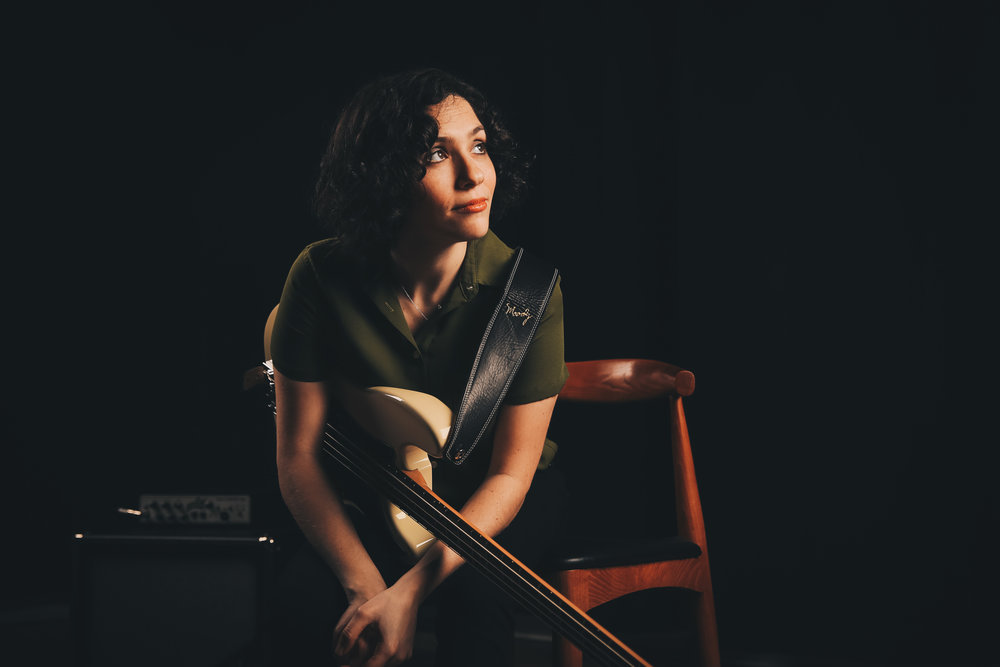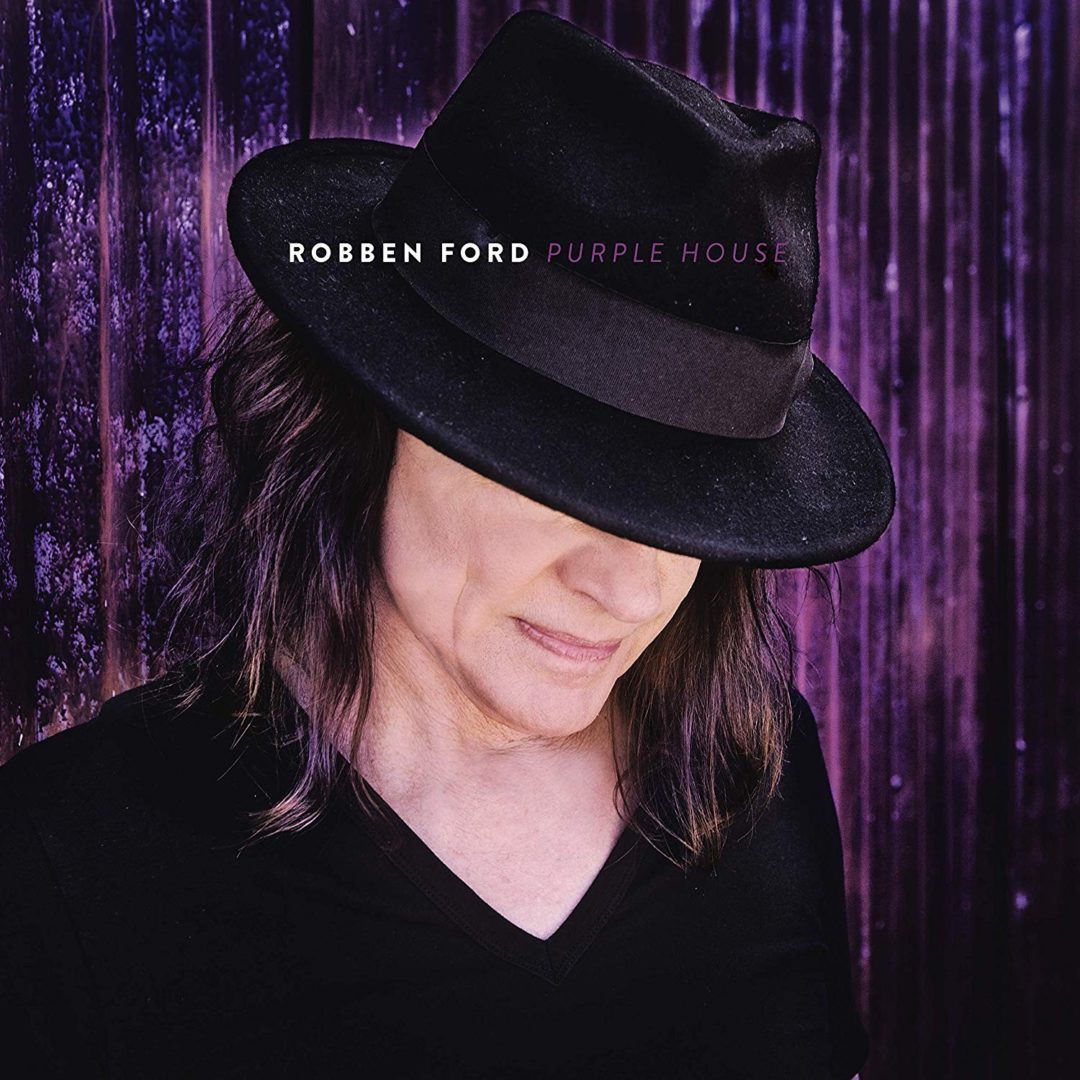Ryan Madora recently joined the Guitar Craft Academy Nashville faculty as a bass performance instructor. Originally from Philadelphia, Ryan moved to Nashville in 2012 and has stayed busy performing in the studio and onstage with Robben Ford, Bobby Bones and many others (check out this Spotify playlist of her recordings). We caught up with Ryan to discuss her career and her work at Guitar Craft Academy Nashville.

What first got you interested in music? When did you begin playing?
I kind of dabbled in a lot of different instruments when I was younger, through school music programs. I played drums for a while in the school band, and didn’t care for it too much. I had always listened to a lot of soul and R&B music and heard basslines, and later in high school, I started to think about playing bass. I was the person who sat in my basement for hours playing along with records. I was mostly self taught, but later attended New York University to study music business and communications.
I knew a couple of other bass players who were familiar with the Nashville music scene, and they were asking what I was doing in Philly. They said I would probably enjoy Nashville from a playing standpoint. A lot of bass players get into a certain performance style, going the crazy slap route, but I’ve always been more song-oriented. Nashville seemed like a place that would be good for the type of music I like to play. I like sitting with the band and respecting the art and the form of songwriting. So I decided to take a chance after college, and I packed up and drove to Nashville.
What music are you most influenced by, and how has that changed over the years?
I went through a pretty heavy Motown and Stax and Philly soul phase. When you grow up in Philly, soul music is a thing. There’s a long legacy of doo-wop and early soul. I got pretty into Otis Redding, Sam and Dave, Wilson Pickett. The first bass players I really noticed were James Jamerson and Bob Babbitt, the two house guys at Motown. Also Donald “Duck” Dunn, the guy at Stax, and David Hood from Muscle Shoals.
I think my influences change. There’s an ongoing flow of music you get into and playing styles you’re influenced by. I think every bass player goes through a Jaco Pastorius phase and a Marcus Miller phase. When you play bass and discover new players, you can’t help but be inspired, because of the way they make you rethink what you’re doing with the instrument.
What attracted you to the bass as a primary instrument?
I think some of it has to do with personality. Some bass players enjoy being the kind of person who’s in the background providing support to the group. I get to make everything gel within a band — trying to link the rhythm section with the guitar player and what’s going on in the harmonic side of things. The goal is to give support and make everything work together.
What do you think is unique about Nashville’s music culture?
I think the fact that so many people here are trying to do the same thing, but doing it in a supportive way, not a competitive one. Because it’s such a small town, and so many players are doing so many kinds of gigs, you want to be supportive of everybody. It’s great to see some of my peers having cool opportunities, knowing there’ll be times you’ll get those as well. You’ll have to call someone for something at some point in time. If I’m not available for a gig, I can recommend my friend, who I know is going to do a great job. You get to work with a lot of different people all the time. In one week, you might get the opportunity to play with three or four different groups of people.

You’ve been the bass player in virtuoso guitarist Robben Ford’s band since 2017. What has been the best part of that musical experience?
One of the things I’ve been able to do is take a minute and develop my own personality as a player. One of the cool things about Robben is he’s really into improvisation. We have a particular song form and know how things are going to go, but there are always moments of pure improvisation where you don’t know what he’s going to do. He may throw a solo to you, or go to just drum and bass. I’ve been a little more on my toes in following him as leader of the band, and I’ve also been taking a moment to showcase myself and my own playing style.
What would you consider some of your other career highlights?
I would say after moving to Nashville and working here for a while, I’ve gotten certain opportunities I wouldn’t elsewhere. Getting to travel on a bus with people, doing sessions with other like-minded professionals. I started playing with Bobby Bones and the Raging Idiots. We’ve gotten to play the Ryman, and played with Lady Antebellum, Darius Rucker, Carrie Underwood.
I’m trying to do more education programs in general. I just got back from Gerald Veasley’s bass boot camp. I was recently a counselor at Rock ‘n’ Roll Fantasy Camp. I really enjoy music production, and I’m working on producing different projects in town. I just finished producing a record with a songwriter, Craig Haller, and I’m excited about that one. It’s going to be hitting the world soon.
What will you be emphasizing in your bass performance classes at Guitar Craft Academy?
It’s important for students to learn the songs they really want to play. The best part of playing music is playing a song you really like. So whatever you can do to encourage students in that is really important. I try marrying that with a solid foundation, giving them enough instruction on technical ability, theory and basic music principles so they know what they’re doing.
